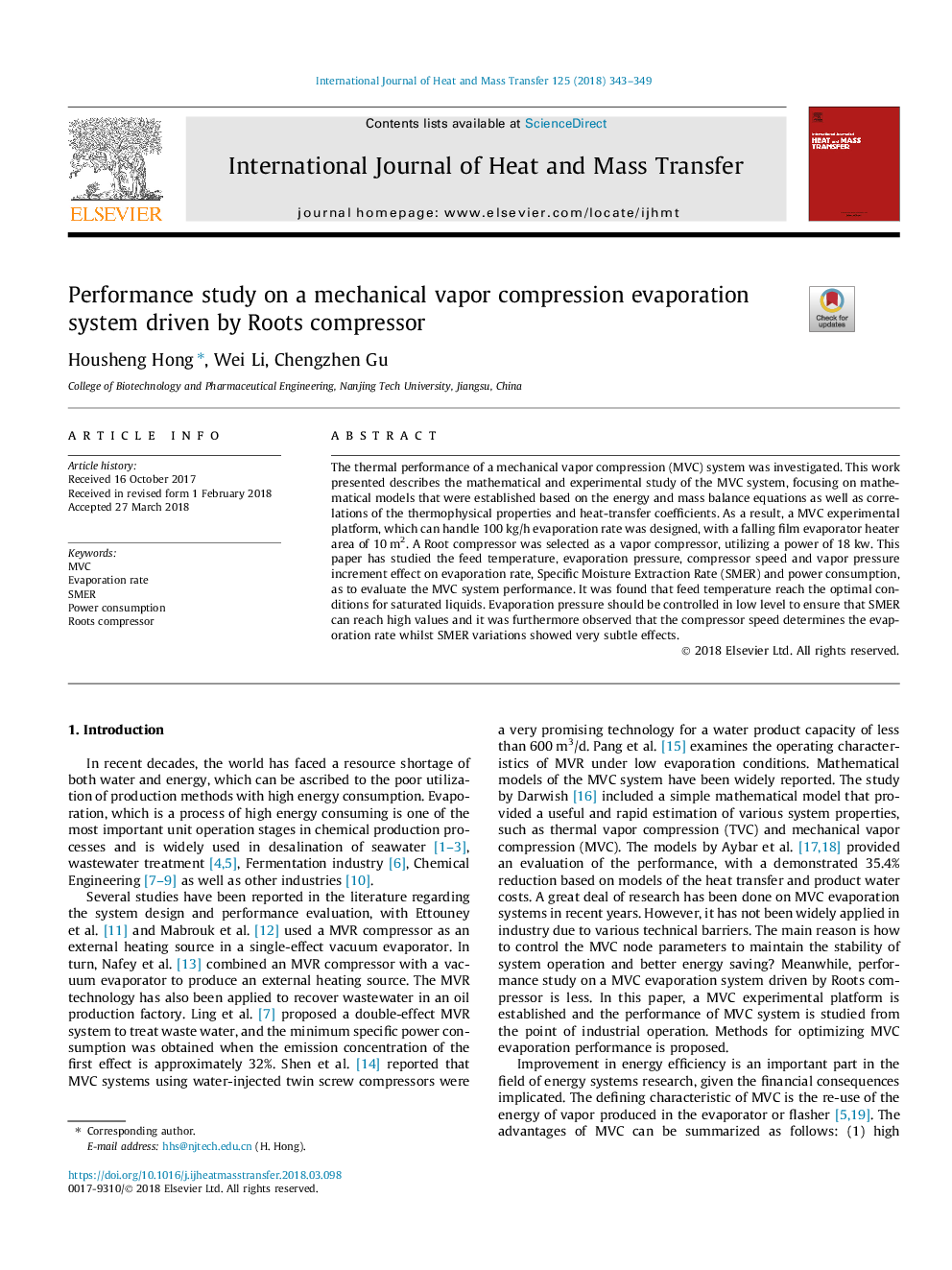| Article ID | Journal | Published Year | Pages | File Type |
|---|---|---|---|---|
| 7054045 | International Journal of Heat and Mass Transfer | 2018 | 7 Pages |
Abstract
The thermal performance of a mechanical vapor compression (MVC) system was investigated. This work presented describes the mathematical and experimental study of the MVC system, focusing on mathematical models that were established based on the energy and mass balance equations as well as correlations of the thermophysical properties and heat-transfer coefficients. As a result, a MVC experimental platform, which can handle 100â¯kg/h evaporation rate was designed, with a falling film evaporator heater area of 10â¯m2. A Root compressor was selected as a vapor compressor, utilizing a power of 18â¯kw. This paper has studied the feed temperature, evaporation pressure, compressor speed and vapor pressure increment effect on evaporation rate, Specific Moisture Extraction Rate (SMER) and power consumption, as to evaluate the MVC system performance. It was found that feed temperature reach the optimal conditions for saturated liquids. Evaporation pressure should be controlled in low level to ensure that SMER can reach high values and it was furthermore observed that the compressor speed determines the evaporation rate whilst SMER variations showed very subtle effects.
Related Topics
Physical Sciences and Engineering
Chemical Engineering
Fluid Flow and Transfer Processes
Authors
Housheng Hong, Wei Li, Chengzhen Gu,
